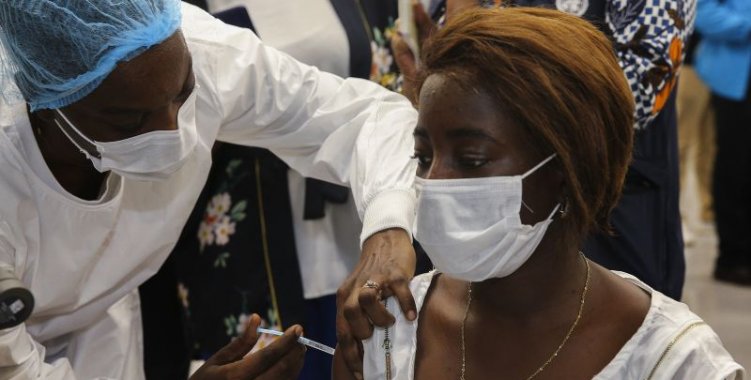Djamila Cabral, who commented, in statements to the Lusa agency, the significant reduction in cases of covid-19 in the country, after the registration, between December 2021 and January of this year, of a drastic increase in cases, said that it is necessary for the authorities continue to encourage people to have their vaccination and in the case of Angola "mainly, the second dose".
"There are many people who have already taken the first dose, but will not take the second, we have to continue to raise awareness," she said.
According to Djamila Cabral, it is also necessary for the authorities to continue to increase access to vaccination points, create new strategies, new ways to reach people who have not yet taken the second dose.
The WHO representative stressed that "the misinformation, even the bad faith that is conveyed" are at the base of this resistance to vaccination, in this sense, a greater work of information and awareness is needed.
"The news that cause fear has a tendency to spread and people believe it. Basically, there is a whole job that we are doing, we are also supporting the Ministry of Health to do, which is to find these messages on social networks and try to counter, argue to try to discredit these messages, but actually they still have a lot of influence and I think at least part of the resistance to vaccination comes from that and another part comes from the fact that people aren't seeing many cases," she said.
For Djamila Cabral, these are factors that favor the continuation of transmission and the emergence of new variants.
"There is nothing that can predict that the new variant will be stronger or weaker than the ones we already had. We can always run the risk of having a variant that is much more dangerous than the ones we already had", she stressed.
In view of the significant reduction in cases of Covid-19, the Angolan authorities alleviated the measures to prevent and combat the disease in the last decree on the state of calamity, including the reopening of the nightclubs, but maintained the interdiction of access to beaches and public swimming pools, a decision that has been questioned by society.
On the subject, the WHO representative said that countries analyze their situation and assess what may or may not contribute to the pandemic and take measures.
Djamila Cabral stressed that this measure may have to do with the fact that the authorities want a gradual relief from restrictions because "people, as they see few cases, tend not to comply".
"If you also relax everything at once, it may not be very good. I believe that the commission of the Ministry of Health, the Government, has evaluated and balanced, because it is all a matter of balance and balance. , sometimes it works less well. The beaches were opened once and suddenly the number of cases flew again", she said.
"Also, learning from experience is part of this whole process. I believe there are reasons to proceed with caution and it is the recommendation that the WHO makes. There is no formula that is good for all countries, each country has its data, It has its own reality, its social, economic and health problems, so each country tries to evaluate it, goes on doing it, undoing the measures, goes back, advances", she added.
In this sense, the WHO representative continued, "Angola has really been very exemplary".
"Because we have taken the right measures, which have been taken and when necessary we have turned back. I think that if everyone cooperates we can reach a point where there will be more relaxation of measures, but the fact of going slowly, for us, It's really a good sign, it's the way we should go. Going slowly to see how we adapt to the return to almost normal life", she underlined.
Angola reported zero deaths on Monday, for the third consecutive day, having registered 18 new cases of the disease.
Since the beginning of the pandemic, the country has accumulated 98,532 cases of covid-19, of which 1,898 have died, 96,393 have recovered and 241 are undergoing treatment.
Covid-19 has caused at least 5,813,329 deaths worldwide since the beginning of the pandemic, according to the latest report by the Agence France-Presse.
The respiratory disease is caused by the SARS-CoV-2 coronavirus, detected in late 2019 in Wuhan, a city in central China.
The rapidly spreading and mutating Ómicron variant has become dominant in the world since it was first detected in November in South Africa.







